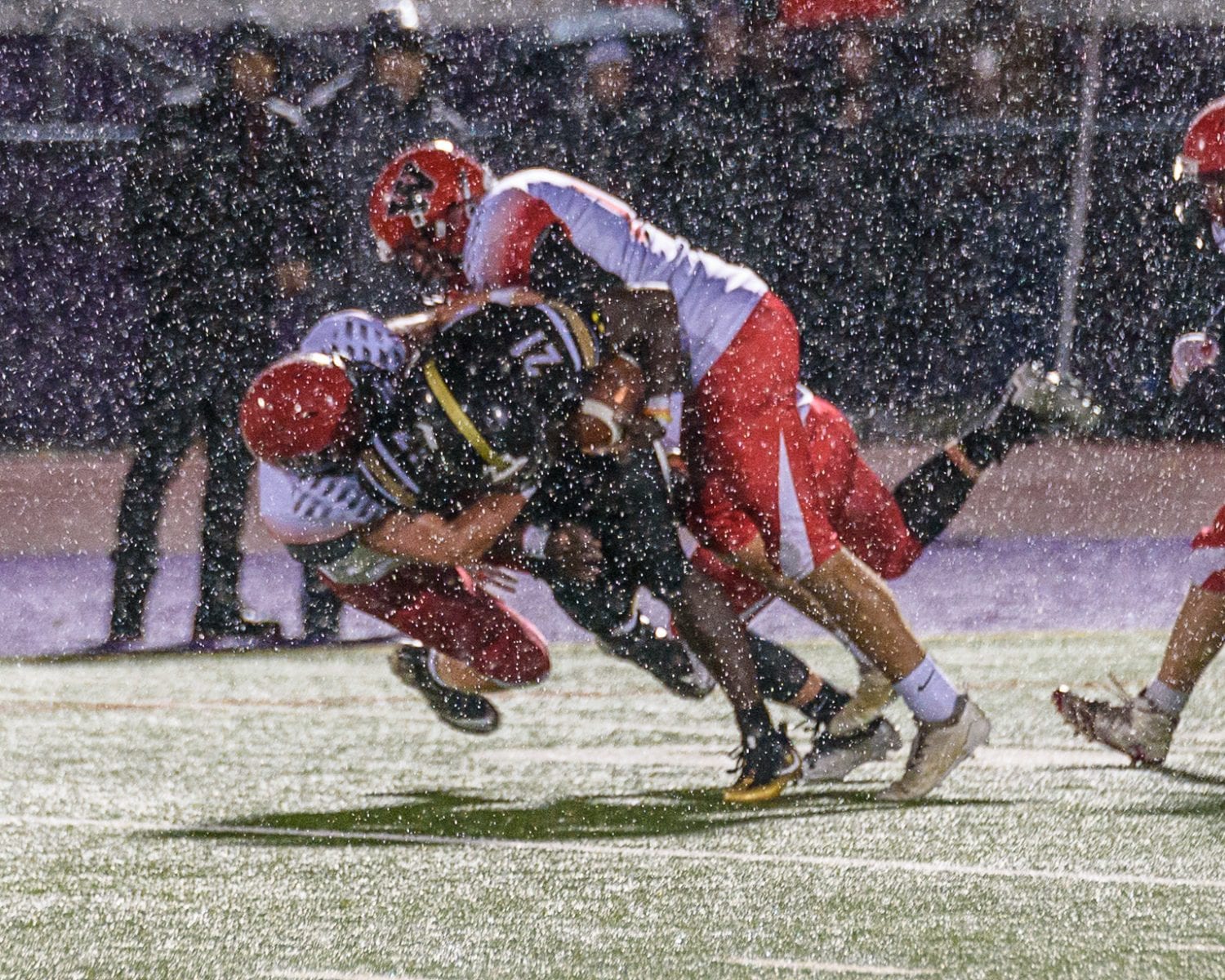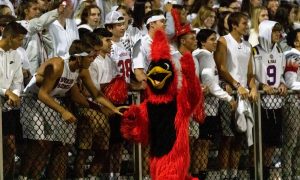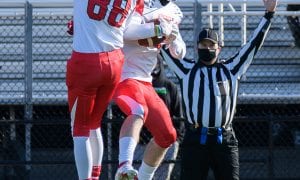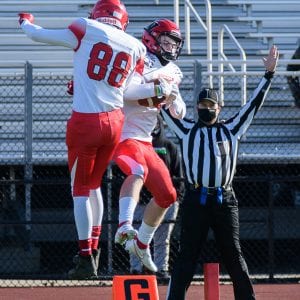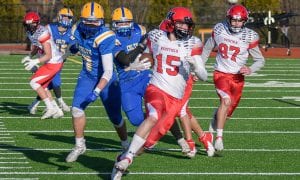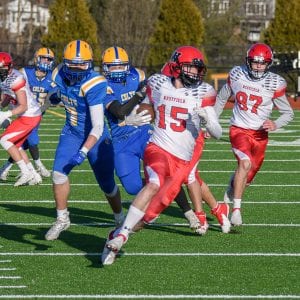WESTFIELD- Youth football coaches are speaking out against the proposed bill that would ban tackle football for youth in grades six and younger. The bill is in the Public Health Committee of the state’s House of Representatives.
The bill, proposed by Rep. Paul Schmid of Wesport, cites the risk of concussions and the development of Chronic Traumatic Encephalopathy (CTE) as the reasons for the proposed ban.
“Increasingly, science is telling us that hits to the head are bad, and that the sooner they start, the younger you are when they start, they worse it is for you,” Schmid told the Public Health Committee.
Flag football and other non-tackle forms of the sport would still be allowed as there is little to no hard contact.
Westfield High School football coach Rob Parent said that banning youth football may actually make the sport more dangerous for those kids when they play when they get older.
“Tackle football is not an easy sport to play. It’s simple physics,” said Parent, “When the players are much smaller and we can teach them the proper way to make tackles and play the game, the impacts are much less.”
He added that if the players are only learning to play the game for the first time when they are bigger and in high school, it could put them in jeopardy of making improper, unsafe tackles and making the game less safe overall.
State Rep. John C. Velis called the proposed ban “absolutely absurd” and compared it to recently proposed bills that would ban balloons or ban people from saying B–ch in Massachusetts.
“To ban tackle football for those in [seventh] grade or younger defies logic,” said Velis, “We need to get back to doing the work that the people sent us to Boston for.”
Velis said that he thinks the choice to play tackle football should be entirely between the kids and their parents. He also noted that he does not think the bill will ever see a vote outside of committee.
In the language of Schmid’s bill, fines of $2,000 would be imposed for every violation of the ban. The penalty would increase for subsequent violations or if the player experiences “serious physical harm”.
Schmid said once that this is only his first attempt in filing the bill in committee so that it can be raised for public discussion and he can then work out the details.
The bill (H 2007) is titled “An act for no organized head impacts to schoolchildren” or “NO HITS” when abbreviated.
Dr. Robert Stern, the director of clinical research at Boston University’s CTE Center, said that growing research has revealed that it is not just the bigger hits to the head that can cause CTE down the road. Rather, it is the more frequent, smaller impacts that can cause the most damage over time.
CTE is a degenerative brain disease that has been found in the brains of a majority of deceased former NFL players who were tested. The disease is difficult to learn from and analyze, as one can only be officially diagnosed post-mortem when the brain can be removed from the skull.
“Football is to CTE what smoking is to lung cancer,” said Chris Nowinski, a former professional wrestler and Harvard football player who co-founded BU’s CTE Center, “The more you do it, the longer you do it, the greater your risk.”
In a recent BU study, it was found that the risk of CTE development doubles after just three years of playing tackle football.

